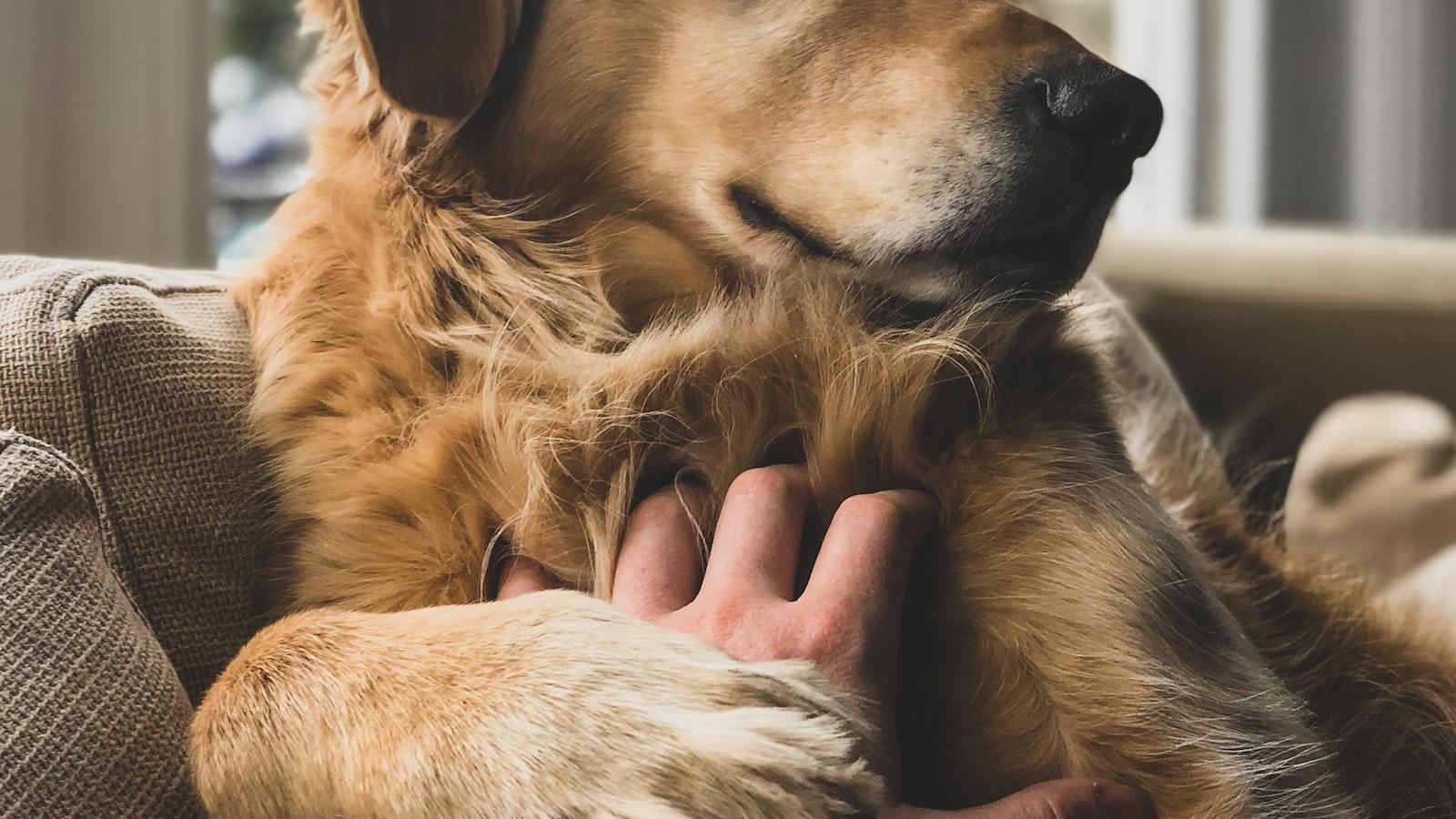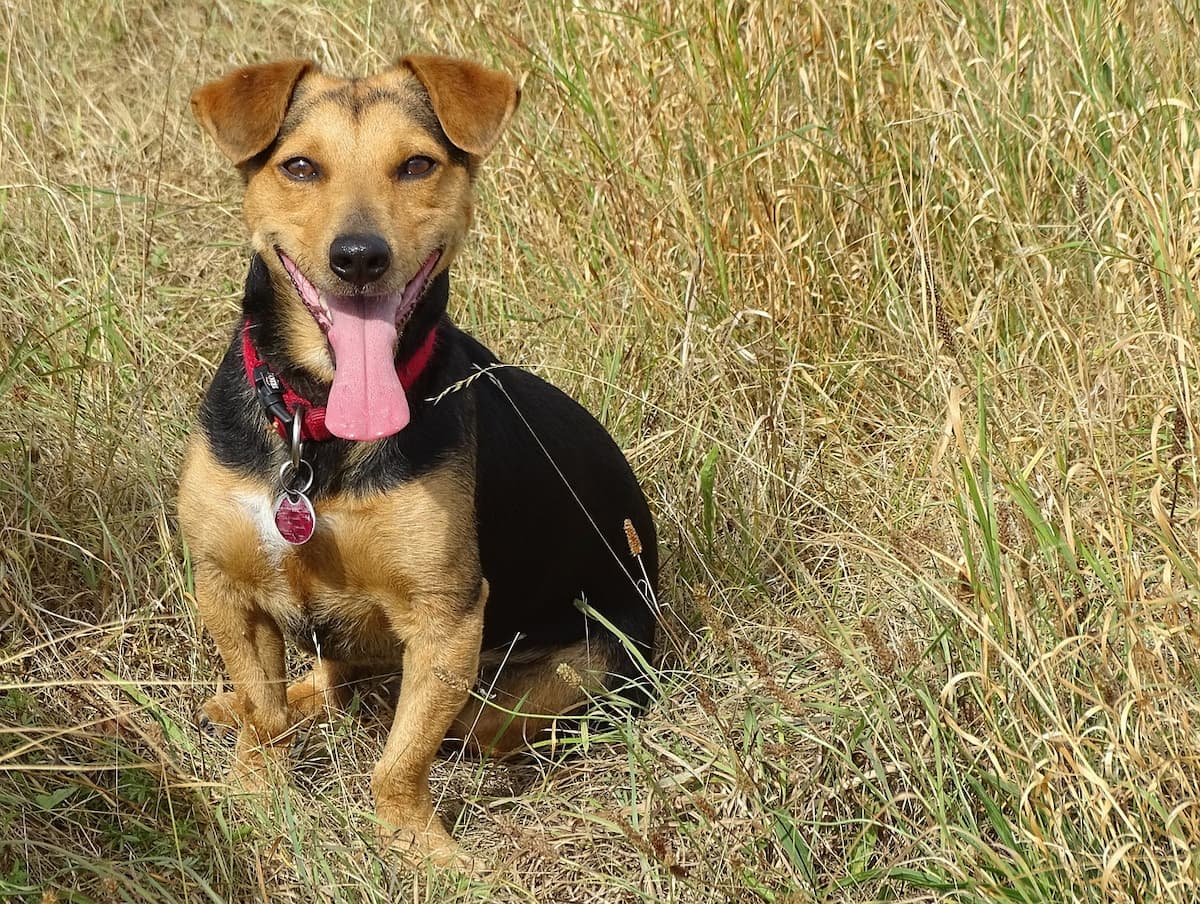Picture this: You walk through the front door, and your fluffy companion greets you with leaps of joy, tail wagging furiously.
As you shower your doggo with love and affection, suddenly, a warm puddle forms at your feet.
Yes, you’ve just experienced the not-so-glamorous side effect of your furry friend’s extreme excitement: pee accidents.
But why does Fido’s bladder seem to lose all control the moment they get elated?
Read on to find out why.
Unraveling the Surprising Truth Behind Why Dogs Pee When Excited
For all the dog lovers out there, you may have experienced a rather unusual behavior from your furry friend – peeing when they get excited.
It can be quite surprising and even a little embarrassing when your dog leaves a trail of urine behind them in moments of excitement.
But why do they do it?
Here are some surprising truths:
1. A Sign of Submission
Believe it or not, when your pup pees when they get excited, it can be a way of expressing submission.
Dogs naturally seek to establish hierarchy within their social interactions, and sometimes, a urine release is their way of showing they recognize another dog or even a human as the dominant figure.
It’s their polite way of saying, “Hey, I respect you, and I’m not a threat!”
Remember, dogs communicate through body language, and peeing when excited can be seen as a submissive gesture rather than a urinary control problem.
It’s just their unique way of trying to maintain harmony within their social circle.
2. An Overflow of Joy
Have you ever witnessed a kid jumping up and down with excitement and maybe even giggling uncontrollably?
Well, dogs can exhibit similar behaviors!
When your fluffy companion is simply overwhelmed with joy and happiness, their bladder muscles can be triggered, causing an involuntary release of urine.
This is more common in puppies who haven’t developed full bladder control yet, but it can happen to adult dogs too.
Think of it as their way of expressing extreme happiness that their little bladder just can’t contain!
3. A Case of “Oops, I Couldn’t Hold It”
Lastly, occasional accidents can happen to even the most well-trained dogs when they get too excited.
Similar to humans who may involuntarily leak a small amount of urine when laughing too hard or sneezing, dogs can experience similar situations.
Excitement can cause their pelvic muscles to relax, which may result in small urine leaks.
If your dog frequently experiences this, it’s always a good idea to consult with a veterinarian to rule out any underlying medical conditions that could contribute to the issue.
Another factor that contributes to excitement peeing is the release of adrenaline in a dog’s body.
Just like how humans may experience a rush of adrenaline in exciting or frightening situations, dogs can also have this response.
And when adrenaline surges through their system, it can cause the muscles around the bladder to contract, leading to unintentional urination.
4. Previous Negative Experiences
Dogs with a history of trauma or negative experiences may also be more prone to excitement peeing.
These past experiences could have created anxiety or fear around certain situations, leading to involuntary urination as a coping mechanism.
Practical Tips to Guide Your Pup Navigate Excitement Peeing
So, how can we help our pups navigate excitement peeing?
The good news is that there are ways to minimize or even prevent this behavior.
Here are some practical tips and techniques you can try:
1. Stay Calm and Keep Your Energy in Check:
When you come home or encounter your pup after a period of separation, it’s crucial to stay relaxed and avoid getting them overly excited.
Greet them with a calm demeanor and avoid using high-pitched, excitable voices.
By keeping your energy level in check, you can help them stay calm and minimize the chances of excitement peeing.
2. Create a Calm Environment:
To minimize excitement peeing, it’s essential to create a calm and soothing atmosphere in your home.
Keep the environment as quiet and peaceful as possible, especially when guests arrive.
Turn off loud music or the TV, lower your voice, and adopt a calm demeanor.
This helps signal to your dog that it’s not necessary to get overly excited when someone comes over.
Many dogs feed off the energy of their humans, so remaining calm can make a big difference in curbing their excitement-induced accidents.
3. Give Your Pup an Opportunity to Relieve Themselves
If you know your pup tends to have accidents when they get excited, it’s a good idea to take them for a quick potty break before any exciting encounters.
This can help ensure that their bladder is empty, reducing the likelihood of excitement peeing.
4. Utilize Positive Reinforcement:
Positive reinforcement is a powerful tool in training dogs to adopt desired behaviors.
When it comes to minimizing excitement peeing, positive reinforcement involves rewarding your dog for staying calm and composed in the presence of visitors.
Encourage your guests to give your dog treats or affection only when they are calm, reinforcing the idea that good behavior brings positive rewards.
This will help your furry friend associate being calm with receiving attention, redirecting their excitement towards a more desirable behavior.
5. Gradual Desensitization Techniques:
Gradual desensitization involves exposing your dog to situations that trigger excitement peeing in a controlled and gradual manner.
Start by inviting a friend or family member over and instruct them to ignore your dog completely.
This allows your furry friend to acclimate to their presence without the added pressure of attention.
As your dog becomes more comfortable, gradually increase the level of interaction and reward them for maintaining control.
Over time, these desensitization exercises can help your dog overcome their excitement peeing tendencies.
FAQ
Q: Why exactly do dogs pee when they’re excited?
A: Well, it all boils down to their uncontrollable enthusiasm!
When dogs get all worked up, whether it’s seeing their favorite human after a long day or sensing something thrilling is about to happen, their excitement can become a bit overwhelming.
Much like a happy dance or a wagging tail, peeing is just one way for them to express their joyous emotions.
Q: But isn’t peeing when excited a sign of a training issue or even submission?
A: Not necessarily!
While it’s partially related to their training or even submissive tendencies, it’s important to remember that this behavior is not intentional or meant to challenge anyone’s authority.
It’s primarily a physiological response linked to a dog’s overall excitement and a few other factors we’ll explore next.
Q: Are there certain types of dogs more prone to this behavior?
A: Interestingly enough, this tendency is more commonly seen in young or small dogs who might not have full control over their bladder just yet.
The good news is that most puppies grow out of this phase as they mature and learn to control their bodily functions better.
Q: Is there anything I can do to prevent my dog from peeing when they get excited?
A: Absolutely!
While we can’t completely eliminate the possibility, there are a few tricks you can try.
The key is to help your canine companion build confidence and manage their excitement levels.
Here are a couple of tips:
1. Stay calm and composed: Dogs are super perceptive and can pick up on human emotions.
By maintaining a calm demeanor yourself, you can help keep your dog’s excitement in check.
2. Manage greetings: When you come home or meet your dog after a brief separation, avoid fueling their excitement by rushing to pet them or showering them with excessive attention right away.
Instead, try giving them a chance to calm down first before offering affection.
Q: Can this behavior be a sign of a medical issue?
A: In some cases, excessive urination due to excitement might be related to a medical condition.
If you notice your dog peeing more frequently or in unusual amounts throughout the day, it’s always a good idea to consult your vet.
They can rule out any underlying health issues and provide you with the appropriate guidance.
Q: Is there anything else I should be aware of regarding my dog’s peeing habits?
A: Yes!
It’s essential to differentiate between excitement urination and regular bathroom needs.
If your dog regularly pees indoors, it could be a sign of incomplete house training or a more significant medical problem like a urinary tract infection.
Understanding the context and patterns associated with your dog’s urination behavior will help you address any concerns more effectively.
Q: So, to sum it up, dogs pee when they’re excited as a natural response to their overflowing joy.
While it can be a bit inconvenient, it’s ultimately a sign of their love and happiness towards us.
If it becomes a persistent issue or you have additional concerns, never hesitate to reach out to a trained professional who can provide further assistance.
A: That’s right!
Dogs will continue to share their excitement with a little sprinkle here and there, but remember to embrace their adorable quirks because they’re a part of what makes our furry pals so special.
Final Thoughts
So there you have it, folks!
We’ve the explanation behind the adorable yet sometimes messy phenomenon of why our beloved furry friends pee when they get excited.
We learned that this behavior is a completely natural and instinctual response, rooted in their need to communicate and express their emotions.
We discovered that a dog’s excitement can trigger the release of an involuntary trickle of urine due to a combination of factors such as submissive behavior, overstimulation, and a surge in adrenaline.
While it may not always be the most pleasant thing to clean up, it’s crucial to remember that it’s not their fault.
As responsible dog owners, it’s essential to approach the situation with patience, understanding, and a sense of humor.
We shouldn’t scold or punish them for this innocent act; after all, they can’t help it!
Instead, focusing on positive reinforcement and helping them build confidence can make a world of difference.
Remember, a little pee here and there is just a small price to pay for the pure joy and love our furry companions bring into our lives.
At the end of the day, it’s all part of their unique language, and being able to decipher it only strengthens the bond we share with our four-legged friends.














